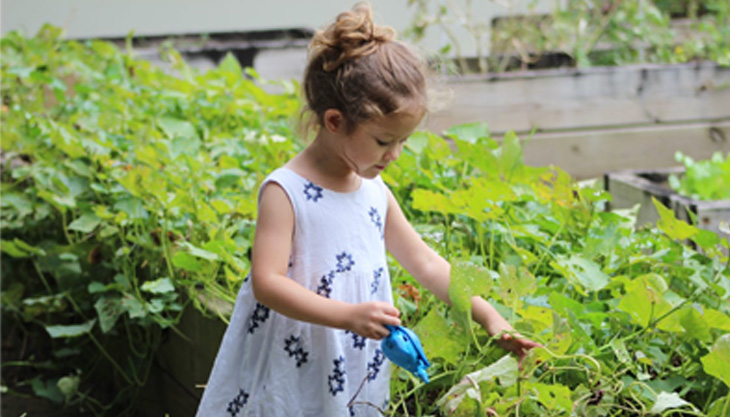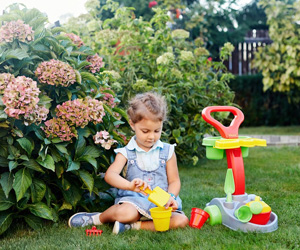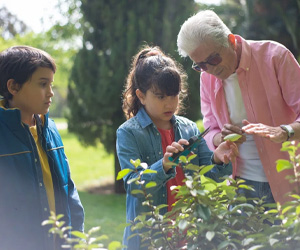Gardening with Children – Vital for Development

Gardening is far more than just a leisurely activity or hobby. It’s a powerful teaching tool, especially for children. There’s a multitude of reasons why gardening holds such significance, and here we delve into the importance of introducing our young ones to the joy and benefits of gardening.
 The first and most tangible benefit of teaching children to garden is self-sustainability. The ability to grow their own food is an invaluable skill, teaching children about self-reliance and the wonders of nature’s bounty.
The first and most tangible benefit of teaching children to garden is self-sustainability. The ability to grow their own food is an invaluable skill, teaching children about self-reliance and the wonders of nature’s bounty.
However, the benefits of gardening extend far beyond mere sustenance. Let’s explore some additional reasons why spending time in the garden with your children is absolutely essential:
Sensory Development: Gardening engages all the senses. Children can touch and feel the dirt, seeds, and flowers, see the vibrant colours and varied sizes of the plants, hear the sound of the garden’s inhabitants, and even taste the fruits of their labour.
Fine Motor Skill Enhancement
The delicate tasks involved in gardening, such as planting seeds and thinning seedlings, can significantly improve children’s fine motor skills.
Gross Motor Skill Development
Gardening also involves more physical tasks. Digging holes, carrying a watering can, raking leaves, and other such activities enhance children’s gross motor skills.
 Quality Family Time
Quality Family Time
Gardening with your children provides an opportunity for quality time as a family. It’s a peaceful and productive way to engage with each other away from the distractions of modern technology.
Environmental Responsibility
Gardening is an excellent way to teach children about environmental care and the importance of sustainable practices. They learn first-hand how the health of the soil, water, and sun affects the health of the plants that grow there.
Healthy Eating Habits
When children are involved in the growing process, they are more likely to eat more fruits and vegetables, promoting healthier eating habits.
In essence, gardening is a rich, hands-on educational experience that has profound benefits for children. It’s an activity that not only teaches them invaluable life skills but also encourages them to connect with nature, understand the environment, and make healthier food choices. So grab a spade, get your hands dirty, and watch your children grow along with your garden.

 Quality Family Time
Quality Family Time
